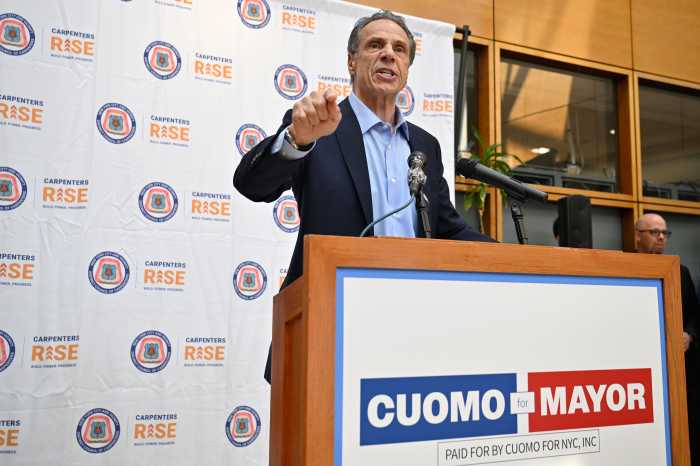The surprise in this year’s J.D. Power customer-satisfaction survey wasn’t that Kennedy Airport is rated one of the worst “mega” airports in the country.
It was that there were five airports considered worse than Kennedy.
After all, with the airport’s hodgepodge of terminals, which range from the good to the awful, its spaghetti network of roads, its limited taxiways, and its inability to handle recent snowstorms and a security snafu, many a New Yorker knows just how bad JFK can be. The survey results simply underscore what we all know: the international hub needs a transformation to a modern facility.
Such an overhaul could have an enormous impact, not only on Kennedy, which last year served 59 million passengers, but on the regional economy, with the potential to spur business relocations, job growth, tax revenue and more. Forecasts suggest Kennedy could serve 75 million passengers by 2030, and it has to be ready.
Gov. Andrew M. Cuomo soon will unveil details and next steps for the plan he first announced in January 2017, which included a remake of terminals, security, technology, taxiways, roads and transit. Now, Cuomo must go beyond pre-election promises to explain how he will get this enormous job done, and how he will hold various parties accountable.
Key to those efforts will be multiple public-private partnerships among the Port Authority of New York and New Jersey, which operates the airport, the terminal operators and airlines, and the developers who will do the work.
That model is already guiding the ongoing redevelopment of LaGuardia Airport, and so far, it seems successful.
Of course, there are differences between the two airport overhauls. Kennedy is far more sprawling, which will help during construction but makes connecting the pieces, including terminals, operators and agreements, more difficult. And Kennedy’s remake will cost more — an estimated $10 billion total, compared with $8 billion at LaGuardia — reflecting the complexity of the project. The Port Authority has committed $1 billion in its capital plan toward Kennedy, and is making clear that much of the rest of the funding will need to come from private investment. That’s key.
Cuomo also must assure that the multiple agreements and partnerships necessary at Kennedy give the Port Authority the best revenue-sharing arrangement possible with the most public benefit. And those agreements also must be consistent, so that each operator has to meet the same high standards on everything from terminal design to safety and security to the specific timetable for finishing the job.
With Executive Director Rick Cotton at the helm, and likely with Cuomo looking over its shoulder, the Port Authority, a bureaucratic behemoth whose history is marked by corruption and ineptitude, will have to make sure developers and terminal operators do the work on time and on budget, limit customer inconveniences and disruptions, and communicate with each other, with the Port Authority and with the public. Appointing a Kennedy overhaul czar of sorts could help move the project along.
Also important: This is a project that has to go beyond shiny new terminals and a coherent airport road ring. Kennedy has had its share of significant problems, from security breakdowns after a false report of shots fired in 2016, to enormous chaos and delays after a snowstorm earlier this year. The upgrades must address those failures by including integrated security and communications upgrades to better handle emergencies.
What’s more, Cuomo and the Port Authority have to remake Kennedy with an eye to growth and expansion. The current plan does not include proposals for a new runway, although experts say one eventually will be necessary because passenger growth is expected to exceed capacity within the next few decades. That exclusion is understandable, since the expense, environmental review and community engagement effort would be enormous, and could hold back the rest of this vitally important project. And there’s a lot to address before any new runway construction could occur — especially since it could involve building over Jamaica Bay — including the impact of climate change and potential storm surges, and mitigating damage to the bay.
But even without a new runway being contemplated now, it’s critical for the Port Authority to create a project that doesn’t interfere with future expansion and lays the groundwork for a new runway.
Like Kennedy’s air traffic control on any given day, there’s a lot to coordinate, plan and execute. But with the right pilots at the helm, and the right course, navigation and communication, a new Kennedy will help the region soar.





































